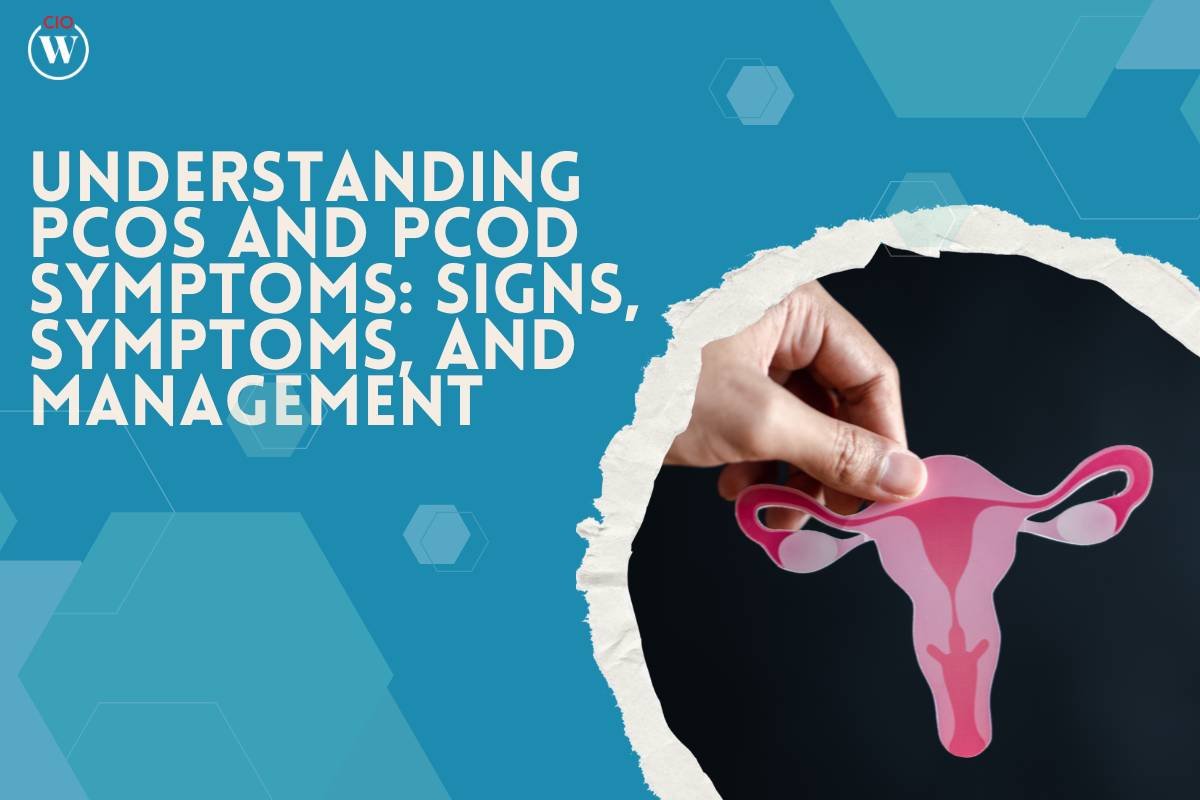Polycystic Ovary Syndrome (PCOS) and Polycystic Ovary Disorder (PCOD) are two common hormonal disorders affecting women of reproductive age. Both conditions share similarities in symptoms and can significantly impact a woman’s health and quality of life. Understanding the signs and symptoms of PCOS and PCOD is crucial for early diagnosis and effective management. In this comprehensive guide, we delve into the intricacies of these conditions, exploring their symptoms, causes, and management strategies.
Understanding PCOS and PCOD:
PCOS and PCOD are hormonal disorders characterized by an imbalance in reproductive hormones, particularly androgens (male hormones) and insulin. While the exact cause of these conditions remains unclear, genetic predisposition, insulin resistance, and lifestyle factors are believed to play significant roles.
Symptoms of PCOS and PCOD:
Both PCOS and PCOD present a range of symptoms, which can vary in severity among affected individuals. Some of the most common symptoms include:

- Irregular Menstrual Cycles: Women with PCOS and PCOD often experience irregular periods, which may be infrequent or absent altogether. This irregularity is due to hormonal imbalances that disrupt the normal menstrual cycle.
- Excessive Hair Growth (Hirsutism): Excess androgens in the body can lead to hirsutism, characterized by the growth of course, of dark hair on areas such as the face, chest, and back. This symptom can significantly impact a woman’s self-esteem and confidence.
- Acne and Oily Skin: Elevated levels of androgens can also contribute to acne and oily skin. Women with PCOS and PCOD may experience persistent acne outbreaks, particularly around the chin, jawline, and cheeks.
- Weight Gain and Difficulty Losing Weight: Insulin resistance, a common feature of PCOS and PCOD, can make it challenging for women to maintain a healthy weight. Weight gain, particularly around the abdomen, is common, and losing weight may require significant effort.
- Difficulty Conceiving (Infertility): Hormonal imbalances associated with PCOS and PCOD can interfere with ovulation, making it difficult for women to conceive. Infertility is a common concern among women with these conditions, although many can still achieve pregnancy with appropriate treatment.
- Hair Loss (Male Pattern Baldness): Some women with PCOS and PCOD may experience thinning hair or male-pattern baldness, particularly along the crown of the head. This symptom is also attributed to hormonal imbalances and may worsen with age if left untreated.
- Darkening of Skin (Acanthosis Nigricans): Acanthosis nigricans is a skin condition characterized by the darkening and thickening of certain areas, such as the neck, armpits, and groin. It is often associated with insulin resistance and can occur in women with PCOS and PCOD.
- Mood Disorders: Hormonal imbalances in PCOS and PCOD can contribute to mood swings, depression, and anxiety. Women with these conditions may experience fluctuating emotions and find it challenging to manage stress.
- Sleep Disturbances: PCOS and PCOD can disrupt sleep patterns, leading to insomnia or poor sleep quality. Sleep disturbances may exacerbate other symptoms such as fatigue and mood disorders, further impacting overall well-being.

Management of PCOS and PCOD:
While there is no cure for PCOS and PCOD, various treatment options are available to manage symptoms and improve overall health. The treatment approach may vary depending on the individual’s symptoms, medical history, and reproductive goals. Some common management strategies include:
- Lifestyle Modifications: Adopting a healthy lifestyle is crucial for managing PCOS and PCOD. This includes maintaining a balanced diet, engaging in regular exercise, managing stress levels, and getting an adequate amount of sleep. These lifestyle modifications can help improve insulin sensitivity, regulate menstrual cycles, and promote weight loss.
- Medications: Certain medications may be prescribed to address specific symptoms of PCOS and PCOD. For example, hormonal contraceptives can help regulate menstrual cycles and reduce symptoms such as acne and hirsutism. Metformin, a medication commonly used to treat type 2 diabetes, may be prescribed to improve insulin sensitivity in women with PCOS.
- Fertility Treatments: Women struggling with infertility due to PCOS or PCOD may benefit from fertility treatments such as ovulation induction or in vitro fertilization (IVF). These treatments can help stimulate ovulation and increase the chances of conception.
- Anti-Androgen Medications: In cases of hirsutism and male-pattern baldness, anti-androgen medications may be prescribed to block the effects of androgens on the body. These medications can help reduce hair growth and improve symptoms related to excess androgens.
- Surgical Interventions: In rare cases, surgical interventions such as ovarian drilling may be recommended to induce ovulation in women with PCOS who have not responded to other treatments. However, surgery is typically considered a last resort and is reserved for specific situations.
- Nutritional Counseling: Working with a registered dietitian or nutritionist can provide valuable guidance on optimizing dietary choices to manage PCOS and PCOD symptoms. Tailored meal plans focusing on balanced macronutrients and micronutrients can support weight management, improve insulin sensitivity, and regulate hormonal imbalances.
- Psychological Support: Managing the emotional and psychological aspects of living with PCOS and PCOD is essential for overall well-being. Therapeutic interventions such as cognitive-behavioral therapy (CBT) or support groups can help women cope with the challenges of these conditions, improve self-esteem, and enhance resilience in the face of adversity.

Know more: Managing PCOS: A Comprehensive Guide To Taking Control Of Polycystic Ovary Syndrome
Conclusion:
PCOS and PCOD are complex hormonal disorders that can have significant implications for women’s health and well-being. Recognizing the signs and symptoms of these conditions is essential for early diagnosis and effective management. By adopting a holistic approach that addresses lifestyle factors, medications, and fertility treatments, women with PCOS and PCOD can take control of their health and improve their quality of life. If you suspect you may have PCOS or PCOD, consult with a healthcare professional for an accurate diagnosis and personalized treatment plan.









